 W
WLieutenant Colonel William Herbert Anderson VC was a Scottish recipient of the Victoria Cross, the highest and most prestigious award for gallantry in the face of the enemy that can be awarded to British and Commonwealth forces.
 W
WJohn André was a major in the British Army and head of its Secret Service in America during the American Revolutionary War. He was hanged as a spy by the Continental Army for assisting Benedict Arnold's attempted surrender of the fort at West Point, New York, to the British.
 W
WJames Douglas, Earl of Angus was a Scottish nobleman and soldier.
 W
WGeneral Sir Andrew Francis Barnard was an Irish British Army officer. He served in various capacities in the West Indies, the Cape of Good Hope, Canada, the Netherlands, Sicily, Spain and in the Napoleonic Wars including the Battle of Waterloo for which service he was highly decorated. After his retirement from active duty, he served in a number of civilian positions, being promoted to general four years before his death.
 W
WQaboos bin Said Al Said was the Sultan of Oman from 23 July 1970 until his death. A fifteenth-generation descendant of the founder of the House of Al Said, he was the longest-serving leader in the Middle East and Arab world at the time of his death.
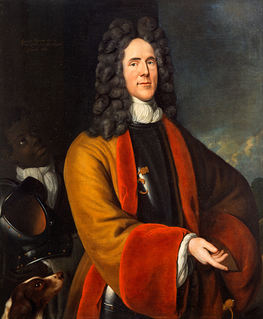 W
WLieutenant-Colonel John Blackadder was a Scottish soldier who served with the Cameronian Regiment during the late seventeenth and early eighteenth centuries.
 W
WWilliam Bradshaw VC, born in Thurles, County Tipperary, was an Irish recipient of the Victoria Cross, the highest and most prestigious award for valour in the face of the enemy that can be awarded to British and Commonwealth forces.
 W
WGeneral Sir Roy Bucher was a British soldier who became the second Commander-in-Chief of the Indian Army and the final non-Indian to hold the top post of the Indian Army after Partition.
 W
WWilliam Caine was the first head of the Hong Kong Police Force, Colonial Secretary of Hong Kong from 1854 to 1859. He attained the rank of Lieutenant Colonel prior to his secretary appointment. Caine was also the acting Governor of Hong Kong between May and September 1859.
 W
WLieutenant Colonel Duncan Maclachlan Carter-Campbell of Possil OBE, son of Major-General George Tupper Campbell Carter-Campbell C.B., D.S.O, was a British Army Colonel during the 1950s.
 W
WMajor General George Tupper Campbell Carter-Campbell, was a senior British Army officer who served in the Second Boer War and the First World War.
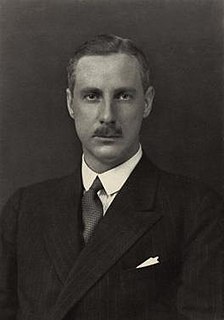 W
WColonel David John Colville, 1st Baron Clydesmuir,, was a Scottish Unionist politician, and industrialist. He was director of his family's steel and iron business, David Colville & Sons.
 W
WRonald John Bilsland Colville, 2nd Baron Clydesmuir, KT, CB, MBE, TD, was a Scottish soldier and businessman. He notably served as Governor of the Bank of Scotland, Lord Lieutenant of Lanarkshire and Captain General of the Queen's Bodyguard in Scotland. He was described as "an outstanding and dedicated servant of Scotland. He was a gentleman of the old school with a genial wit and great generosity of spirit".
 W
WMajor-General Sir Walter Joseph Constable-Maxwell-Scott, 1st Baronet was a senior British Army officer.
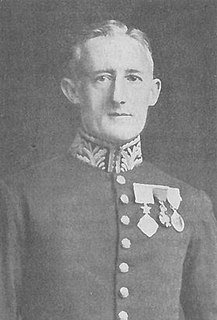 W
WMajor-General Sir Percy Zachariah Cox was a British Indian Army officer and Colonial Office administrator in the Middle East. He was one of the major figures in the creation of the current Middle East.
 W
WLieutenant-General Henry Hope Crealock was a British soldier, artist, and author.
 W
WStanley Cursiter was an Orcadian artist who played an important role in introducing Post-impressionism and Futurism to Scotland. He served as the keeper (1919–30), then director (1930–48), of the National Galleries of Scotland, and as HM Limner and Painter in Scotland (1948–76).
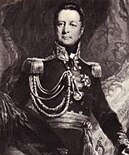 W
WGeneral George Ramsay, 9th Earl of Dalhousie,, styled Lord Ramsay until 1787, and Baron Dalhousie from 1815, was a Scottish soldier and colonial administrator. He was Governor of Nova Scotia from 1816 to 1820, Governor General of British North America from 1820 to 1828 and later Commander-in-Chief in India. In turn, his son, James Andrew Broun-Ramsay, 1st Marquess of Dalhousie, would later serve as Governor-General of India.
 W
WMajor-General Thomas de Courcy Hamilton VC was a Scottish recipient of the Victoria Cross, the highest and most prestigious award for gallantry in the face of the enemy that can be awarded to British and Commonwealth forces.
 W
WLieutenant-General Sir William Erskine, 1st Baronet was a British Army commander and the 1st Baronet of the Erskine of Torrie creation.
 W
WDavid Pinkerton Fleming, Lord Fleming was a Scottish politician and judge, rising to be Senator of the College of Justice.
 W
WMajor-General John Dutton "Johnny" Frost, was an airborne officer of the British Army best known for being the leader of the small group of British airborne troops that actually arrived at Arnhem bridge during the Battle of Arnhem in Operation Market Garden, in World War II. He was one of the first to join the newly formed Parachute Regiment and served with distinction in many wartime airborne operations, such as in North Africa and Sicily and Italy, until his injury and subsequent capture at Arnhem. He retired from the army in 1968.
 W
WLieutenant General Sir Alexander Galloway, was a senior British Army officer. During the Second World War, he was particularly highly regarded as a staff officer and, as such, had an influential role in the outcome of Operation Crusader during the Western Desert Campaign in late 1941. He later commanded the 4th Indian Infantry Division at the Battle of Monte Cassino during the Italian Campaign in early 1944.
 W
WMajor General Douglas Alexander Henry Graham, was a senior British Army officer who fought with distinction in both world wars. He is most notable during the Second World War for commanding the 153rd Brigade of the 51st (Highland) Division in North Africa from 1942–1943, later being the General Officer Commanding (GOC) of the 56th (London) Infantry Division during the Salerno landings in Italy in September 1943 and the 50th (Northumbrian) Infantry Division during the Normandy landings in France in June 1944.
 W
WLieutenant General John Christopher Guise was a British Army officer and English recipient of the Victoria Cross, the highest and most prestigious award for gallantry in the face of the enemy that can be awarded to British and Commonwealth forces.
 W
WSurgeon General Sir Anthony Dickson Home VC KCB was a Scottish recipient of the Victoria Cross, the highest and most prestigious award for gallantry in the face of the enemy that can be awarded to British and Commonwealth forces.
 W
WMajor Louis Frederick Knollys, (1847–1922) was the fourth British colonial Inspector-General of Police in Ceylon.
 W
WLieutenant General Samuel Holt Lomax was a British Army officer who commanded the 1st Division during the early battles of the First World War. He was fatally wounded in action in October 1914 at the First Battle of Ypres, being one of the most senior British officers to die on active service during the war.
 W
WThomas Graham, 1st Baron Lynedoch was a Scottish aristocrat, politician and British Army officer. After his education at Oxford, he inherited a substantial estate in Scotland was married and settled down to a quiet career as a landowning gentleman. However, with the death of his wife, when he was aged 42, he immersed himself in a military career, during the French Revolutionary Wars and the Napoleonic Wars.
 W
WJosslyn Francis Pennington, 5th Baron Muncaster, was a British soldier and Conservative Party politician.
 W
WGeneral Sir Horatius Murray, was a senior British Army officer who served with distinction during the Second World War and later in the Korean War.
 W
WGeneral Sir Richard Nugent O'Connor, was a senior British Army officer who fought in both the First and Second World Wars, and commanded the Western Desert Force in the early years of the Second World War. He was the field commander for Operation Compass, in which his forces destroyed a much larger Italian army – a victory which nearly drove the Axis from Africa, and in turn, led Adolf Hitler to send the Afrika Korps under Erwin Rommel to try to reverse the situation. O'Connor was captured by a German reconnaissance patrol during the night of 7 April 1941 and spent over two years in an Italian prisoner of war camp. He eventually escaped after the fall of Mussolini in the autumn of 1943. In 1944 he commanded VIII Corps in the Battle of Normandy and later during Operation Market Garden. In 1945 he was General Officer in Command of the Eastern Command in India and then, in the closing days of British rule in the subcontinent, he headed Northern Command. His final job in the army was Adjutant-General to the Forces in London, in charge of the British Army's administration, personnel and organisation.
 W
WSir Thomas Simson Pratt, KCB was a British Army general. He served in the First Anglo-Chinese War (1839–1841), in India from 1843 to 1855 where he was deputy adjutant-general at Madras, and was Commander of the British Forces in Australia from 1856 to 1861. He was promoted to Lieutenant-General on 31 May 1865, and to full general eight years later.
 W
WReverend Robert Guy Ramsay (1895–1976) was a twentieth-century Scottish Baptist minister and author, most closely associated with Hillhead Baptist Church, Glasgow, Scotland. Rev Guy Ramsay was President of the Baptist Union of Scotland during the late 1940s.
 W
WJohn Charles Walsham Reith, 1st Baron Reith,, was a Scottish broadcasting executive who established the tradition of independent public service broadcasting in the United Kingdom. In 1922 he was employed by the BBC as its general manager; in 1923 he became its managing director and in 1927 he was employed as the Director-General of the British Broadcasting Corporation created under a royal charter. His concept of broadcasting as a way of educating the masses marked for a long time the BBC and similar organisations around the world. An engineer by trade, and standing at 6 feet 6 inches (1.98 m) tall, he was a larger than life figure who was a pioneer in his field.
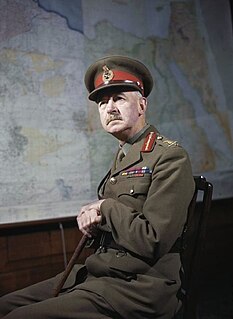 W
WGeneral Sir Thomas Sheridan Riddell-Webster was Quartermaster-General to the Forces during the Second World War.
 W
WMajor-General Sir Philip Rynd Robertson was a British Army officer of the late nineteenth and early twentieth centuries, who commanded a battalion, a brigade and then division in the First World War.
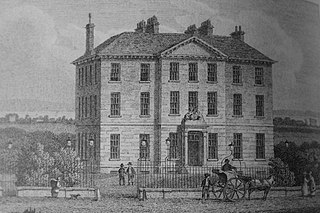 W
WMajor General John Scott of Balcomie and Scotstarvit (1725–1775) was a Scottish politician and senior British Army officer. He was nicknamed Pawky Scott. Pawky is Scots for sly, shrewd or one who tricks you.
 W
WField Marshal John Colborne, 1st Baron Seaton, was a British Army officer and colonial governor. After taking part as a junior officer in the Anglo-Russian invasion of Holland, Sir Ralph Abercromby's expedition to Egypt and then the War of the Third Coalition, he served as military secretary to Sir John Moore at the Battle of Corunna. He then commanded the 2nd Battalion of the 66th Regiment of Foot and, later, the 52nd Regiment of Foot at many of the battles of the Peninsular War. At the Battle of Waterloo, Colborne on his own initiative brought the 52nd Regiment of Foot forward, took up a flanking position in relation to the French Imperial Guard and then, after firing repeated volleys into their flank, charged at the Guard so driving them back in disorder.
 W
WSir Bruce Lovat Seton, 11th Baronet was a British actor and soldier.
 W
WSir William Alexander Smith, the founder of the Boys' Brigade, was born in Pennyland House, Thurso, Scotland. He was the eldest son of Major David Smith and his wife Harriet. He had one sister and two brothers.
 W
WField Marshal John Dalrymple, 2nd Earl of Stair was a Scottish soldier and diplomat. He served in the Nine Years' War and the War of the Spanish Succession and, after a period as British Ambassador in Paris, became a military commander at the Battle of Dettingen during the War of the Austrian Succession.
 W
WLieutenant-general Sir Charles Stuart,, was a British nobleman and soldier. The fourth son of John Stuart, 3rd Earl of Bute, and Mary Wortley Montagu, he was born in Kenwood House, London. There is a famous painting in the Tate Gallery, London, of him aged 10 stealing eggs and chicks from a bird's nest.
 W
WField Marshal Sir Henry Evelyn Wood, was a British Army officer. After an early career in the Royal Navy, Wood joined the British Army in 1855. He served in several major conflicts including the Indian Mutiny where, as a lieutenant, he was awarded the Victoria Cross, the highest award for valour in the face of the enemy that is awarded to British and Imperial forces, for rescuing a local merchant from a band of robbers who had taken their captive into the jungle, where they intended to hang him. Wood further served as a commander in several other conflicts, notably the Third Anglo-Ashanti War, the Anglo-Zulu War, the First Boer War and the Mahdist War. His service in Egypt led to his appointment as Sirdar where he reorganised the Egyptian Army. He returned to Britain to serve as General Officer Commanding-in-Chief Aldershot Command from 1889, as Quartermaster-General to the Forces from 1893 and as Adjutant General from 1897. His last appointment was as commander of 2nd Army Corps from 1901 to 1904.